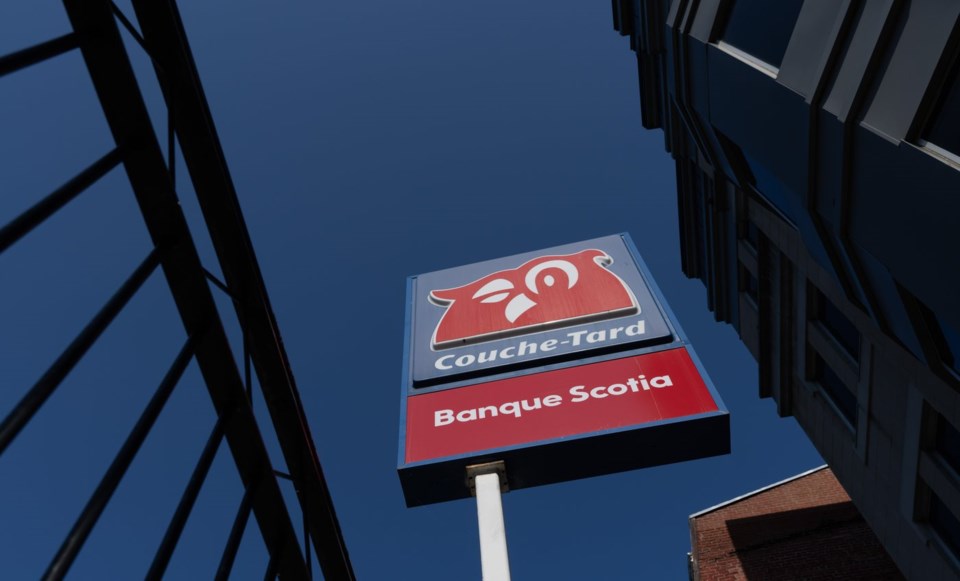Canada's convenience store giant backed away from a blockbuster bid set to dramatically expanded its convenience store empire, when it pulled its proposal to buy the parent company of rival 7-Eleven on Wednesday.
Alimentation Couche-Tard has spent nearly a year courting Seven & i Holdings Co., the Japanese conglomerate with thousands of 7-Eleven locations and a broader portfolio of supermarkets, food producers and financial services companies.
Couche-Tard, which is based in Laval, Que., and owns Circle K and Ingo, ended its overtures Wednesday, accusing its takeover target of a "persistent lack of good faith engagement."
Couche-Tard said it repeatedly sought a friendly dialogue with Seven & i's founding Ito family but alleges it was not open to any conversation about the proposal of ¥2,600 (C$24.04) per ordinary share in cash.
The Canadian company further charged that in meetings that were "tightly scripted" and ran for half the allotted time, management also wasn't willing to address basic questions about industry dynamics.
"There has been no sincere or constructive engagement from 7&i that would facilitate the advancement of any proposal, contrary to comments made publicly by 7&i representatives, including in the July 11, 2025 earnings call in which 7&i noted it is 'seriously' considering our proposal," Couche-Tard executives said in a letter sent to Seven & i's board and released to media.
Seven & i argued back that it had "consistently engaged in good faith and constructively" with Couche-Tard.
"While we are disappointed by ACT's decision, and disagree with their numerous mischaracterizations, we are not surprised," the company said in a statement.
Had the deal progressed, it would have handed Couche-Tard a dominant position in the global convenience store game.
Its network already covers 29 countries and more than 17,000 stores. By comparison, Seven & i's website operates about 85,800 stores, has about 157,177 employees and counts 63.6 million customer visits per day.
When a deal between the two was first bandied around last year, Neil Saunders, managing director of GlobalData, said 7-Eleven's 14.5 per cent market share made it the biggest operator in the convenience retail store space, while Couche-Tard’s banners held about 4.6 per cent.
"Combining the two would produce an entity that controls almost a fifth of the market," he wrote in an email at the time.
The public first learned Couche-Tard had made a friendly offer for Seven & i last August.
The financial terms were never revealed until a month later, when Seven & i said its board of directors unanimously concluded Couche-Tard's initial offer was not in its shareholders' best interests because it was "opportunistically timed and grossly undervalues" the business.
That October, Seven & i received a revised pitch from Couche-Tard. Media reports suggested the new offer valued Seven & i at US$47 billion, about 22 per cent higher than the offer of $38.6 billion Couche-Tard made in August.
The Japanese company appeared to be poised to rebuff that offer as well, when a member of the Ito family put forward a new management buyout proposal.
That proposal failed to secure financing, improving Couche-Tard’s odds. Seven & i maintained it had several worries.
The main one was that it would be too hard to nab regulatory approvals for an acquisition because some could see the deal as reducing competition across several markets.
Seven & i's Wednesday statement said it was "always honest about the extraordinary antitrust hurdles a potential transaction would face." It also pointed out that after Couche-Tard's initial offer, "significant" changes in the global economy, exchange rates and financing markets emerged, challenging the prospect of any deal.
Despite the hurdles, Couche-Tard had tried plenty to forge a transaction.
In December, it offered a compelling reverse termination fee, which represented approximately $1.2 billion in value, increasing to over $1.4 billion, if the Federal Trade Commission indicated that additional stores would need to be divested.
In January, it submitted a revised, yen-based, non-binding proposal to fulfil a request from Seven & i seeking proof of its continued interest in a deal.
The moves got Seven & i to agree to collaborate on assembling a portfolio of stores the companies could divest to appease regulators.
Keen to get a deal done, Couche-Tard said it told Seven & i it was willing to explore a structure where it would acquire 100 per cent of its business outside of Japan and 40 per cent in the country.
On July 1, Couche-Tard alleged Seven & i proposed an alternate – Seven & i would "contribute" 7-Eleven into Couche-Tard in return for equity ownership in the Canadian firm.
Couche-Tard said it didn’t like the offer because it wouldn’t deliver the significant premium it offered and "would undermine the operational prospects of the combined business.”
It ultimately decided to withdraw its proposal because it alleged the Asian company “engaged in a calculated campaign of obfuscation and delay, to the great detriment of 7&i and its shareholders.”
This report by The Canadian Press was first published July 16, 2025.
Tara Deschamps, The Canadian Press


